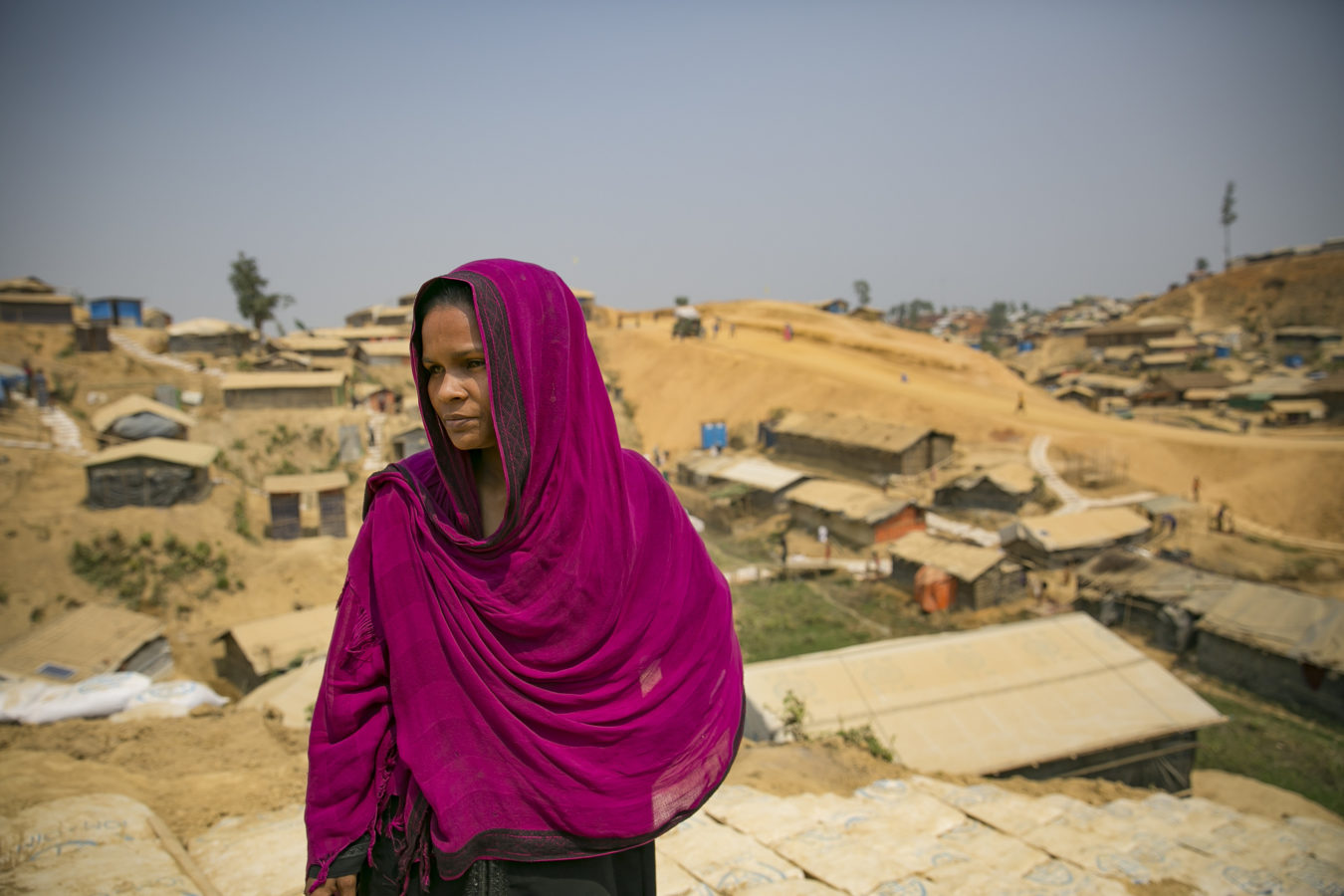The United Nations Women’s Peace and Humanitarian Fund (WPHF) is mobilizing new resources to support women’s organizations in Bangladesh to address the urgent humanitarian challenges facing Rohingya refugee women and girls and to enhance their participation in peacebuilding and recovery across the country.
Overview
In Bangladesh, WPHF has supported 11 civil society organizations under its Regular Funding Cycle.
WPHF is supporting local women’s organizations in Bangladesh working on projects contributing to the following impact areas:
- Impact Area 3: Humanitarian and Crisis Response
- Impact Area 6: Peacebuilding and Recovery
Project Highlights
Explore a sample of key women’s rights and women-led projects that WPHF has supported across the country:
- Under its Regular Funding Cycle, WPHF is supporting AGRAJATTRA on a project to enhance the economic status, participation and decision-making of women and girls in Rohingya refugee camps and host communities across Cox’s Bazar through various activities aiming to increase their participation in economic empowerment activities, build their business skills, and strengthen their knowledge on gender-based violence (GBV) protection mechanisms.
- Under its Regular Funding Cycle, WPHF is supporting Bangladesh Nari Progati Sangha (BNPS) on a project to enhance the leadership skills and livelihoods of displaced women and girls so they can engage with different authorities to raise their concerns and increase their awareness of GBV, child marriage, polygamy and trafficking. Men and boys will work as support groups to facilitate the access of women and girls to different committees and to ensure they know how to address sexual exploitation and abuse.
- Under its COVID-19 Response Window, WPHF supported RDRS Bangladesh on a project that mitigates the economic and health impacts of COVID-19 on both Bangladeshi and Rohingya women – particularly single mothers, women with disabilities and elderly women – by raising awareness of COVID-19 prevention measures, facilitating their access to healthcare and the distribution of hygiene kits, instant cash, food and goods transfers, while also training them on relevant skills and offering them cash grants and support to start their own income-generating activities.
- Under its COVID-19 Response Window, WPHF supported the Women Entrepreneur Association of Bangladesh (WEAB) on a project to raise awareness of COVID-19 by providing trainings on prevention measures and engaging women and girls in awareness campaigns on hygiene, healthcare, and environmental issues. The project created economic opportunities for women and girls by developing local economic models in for handicrafts, touristic and agricultural companies through business and vocational workshops, as well as by providing women and women’s groups with mentoring, technical and financial assistance to start their own businesses.
